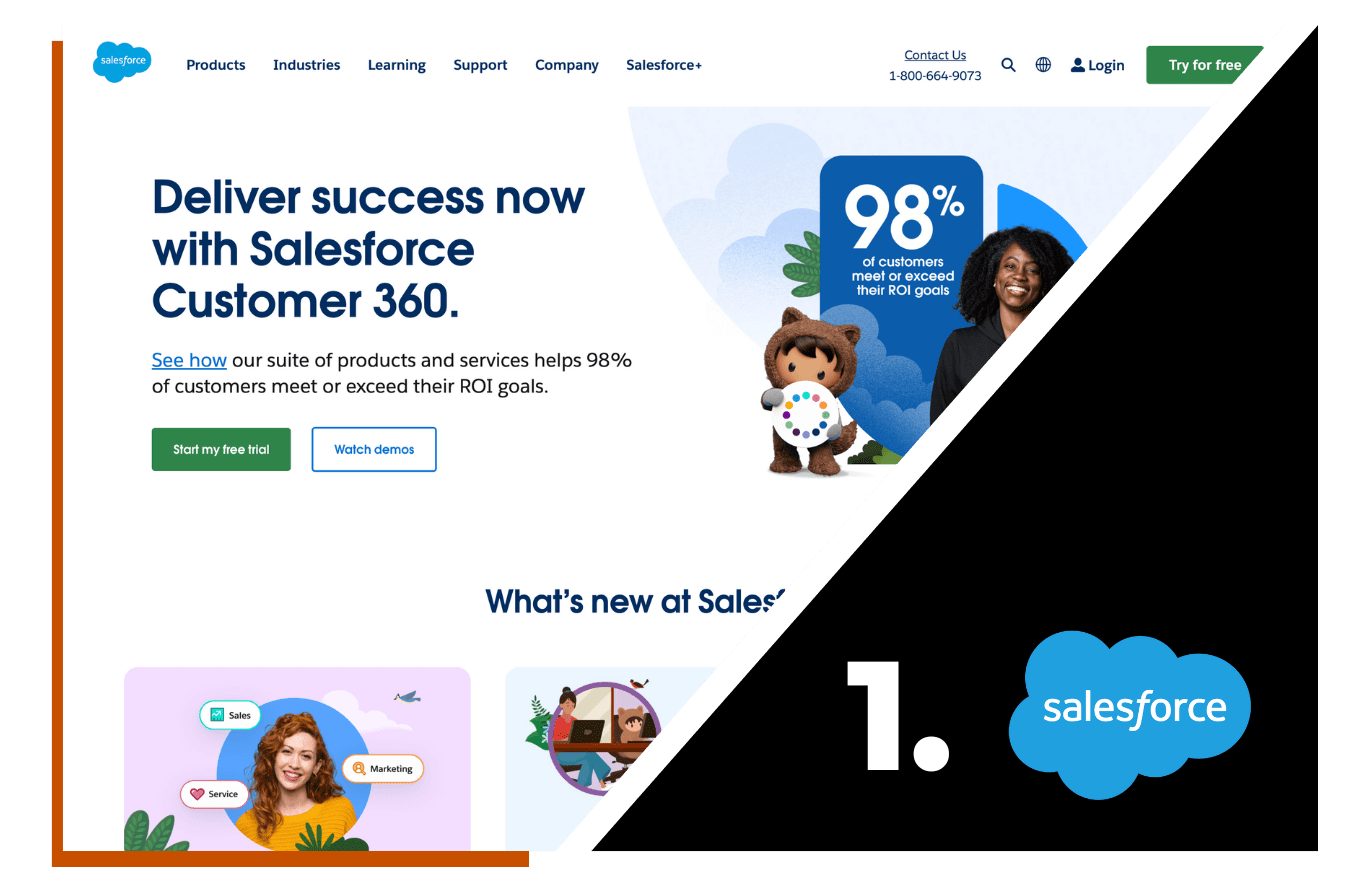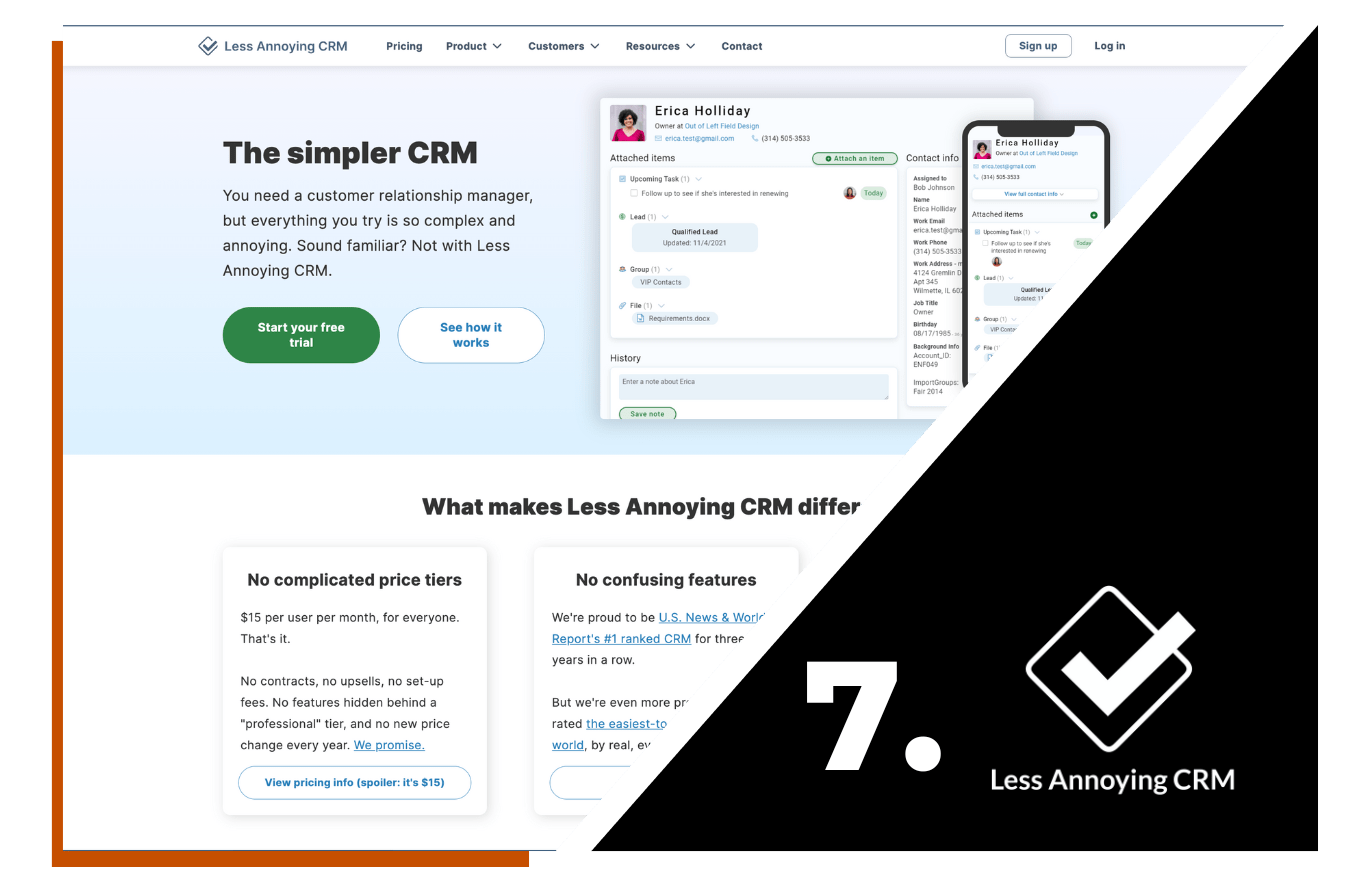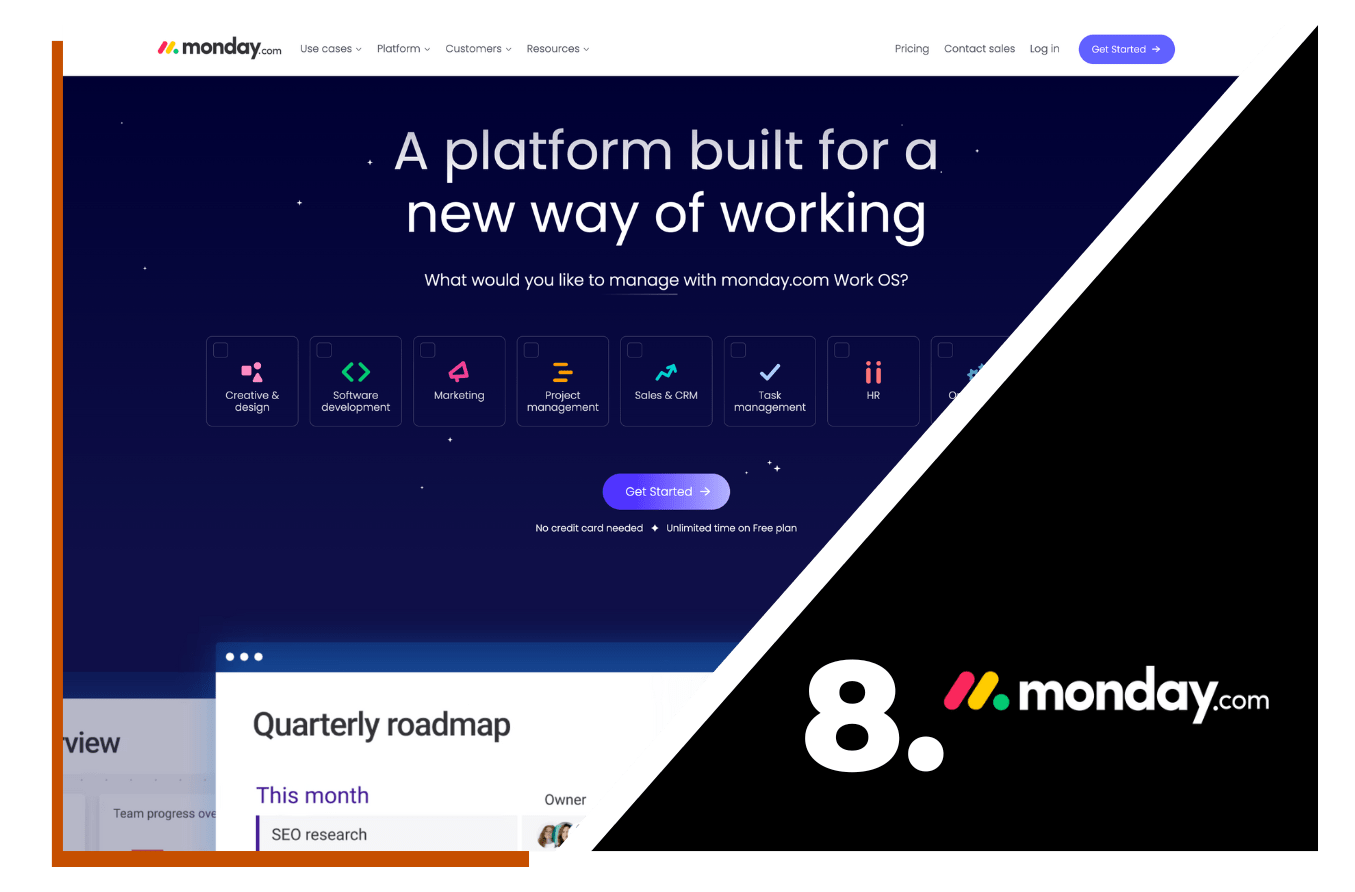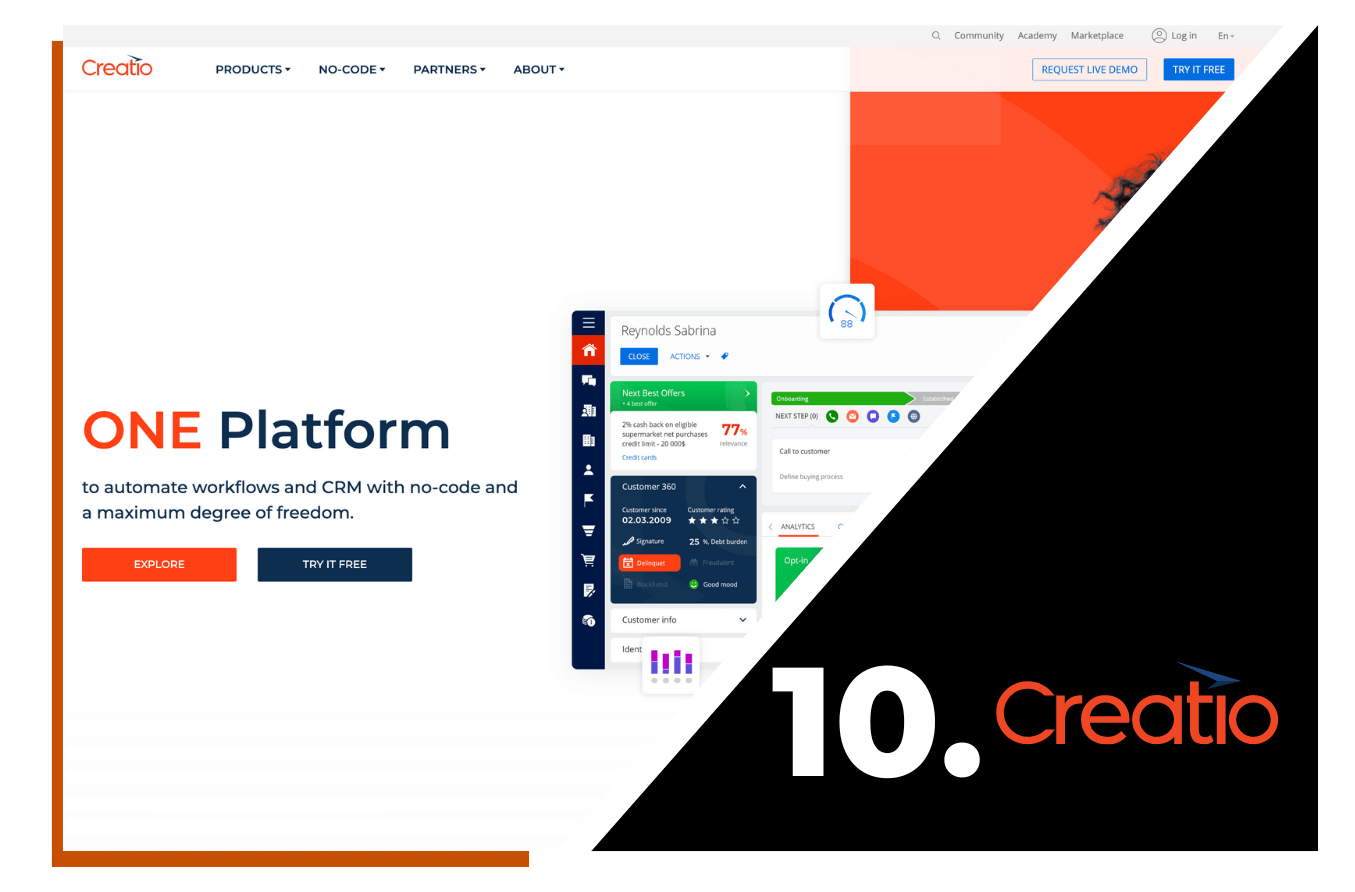CRM Software for Small Business - Top 10 Solutions (2024)
Whether you’re just starting out or already a crafty veteran, the proper CRM software for small business is essential. CRM stands for Customer Relationship Management, and when implemented correctly, it can supercharge sales, drive exponential growth and let you provide incredible customer experiences.
Sounds too good to be true, right? Well, not necessarily.
With the right CRM software for small business, you can create a central hub of customer information that allows your team’s different departments to optimize their effort. CRMs can track sales, quickly organize analysis and encourage collaboration, getting everyone on the same page and putting all the elements of a successful business in one place.
In an increasingly data-driven world, this is a critical piece of the small-business puzzle, with the best options aiming for clarity – letting you spend less time cobbling insights together and more time engaging your community. But, the CRM landscape is large, and with so many options, getting started can feel daunting. Even deciding which type of CRM software is right for you may not be easy.
There are 3 types of CRM software for small business:
Collaborative – To help teams within your company work together more seamlessly.
Operational – Automated, tactical solutions that make your customer experience better.
Analytical – Providing insight into customer behavior, helping you steer toward greater results.
With those in mind, we’ve broken down the top 10 CRM software solutions for small businesses.
1. Salesforce
Salesforce is an all-in-one CRM with a sales focus, helping manage contacts, leads and more into an interactive dashboard. The result is a big-picture view of your business, and you can add features as you grow.
Key Features:
- Cloud-based platform with mobile app
- Scales with your business
- Lead management
2. Zoho CRM
Zoho CRM is a popular choice for small startups looking to keep expenses down, because its free plan allows up to three users. You can create sales workflows and keep track of customers, and switch to a paid version for more features.
Key Features:
- Free option for three users (Good for those just starting out)
- Add-on apps to integrate marketing, inventory and accounting (paid version only)
- Workflow automation
3. Zendesk Sell
For small businesses relying heavily on customer support, Zendesk Sell funnels all customer interactions into a single interface, tracking leads and keeping your team informed. It even allows calls to be recorded, helping your help desk be its best.
Key Features:
- High performance help desk features
- Call recording
- Sales triggers
4. Insightly
Insightly works best for small businesses with project-management needs. If you need to track a project from inception through implementation, delivery and review, this CRM can help keep things running efficiently.
Key Features:
- Chart-view tracking of project workflow
- Easily import date from other apps
- Mass Email Contacts with MailChimp Integration
5. Agile CRM
Like its name suggests, Agile is a CRM for small business which excels at being versatile – namely by adding top-notch marketing features. It’s ideal for shops where sales and marketing team members work closely together.
Key Features:
- Streamlined sales and contact tools
- Drag and drop marketing campaign builder
- Project management tools
6. Keap
Keap is another CRM which combines sales and marketing prowess, where leads can be organized, tracked and turned into sales. Plus, it offers expert instruction to get the most of the platform.
Key Features:
- Automated lead capture and organization
- Expert coaching and support
- Great email marketing features
7. Less Annoying CRM
Knowing that complexity is a small-business turn off, Less Annoying CRM is exactly what it claims to be. It lets you manage your contacts, calendar, and more without getting lost in the tech-feature weeds.
Key Features:
- Built for ease of use, less complexity.
- Straight forward, to-the-point feature set.
- Relationship management
8. monday.com
If you’ve got a fast-moving team who need to be in lockstep, monday.com could be your ideal CRM for small business. Those familiar with Kanban will find its visual organizer especially easy to use.
Key Features:
- Kanban-style organizer boards
- Free option with robust features
- Dynamic sales pipelines
9. Freshsales
For many small businesses, finding and developing leads is a key concern, and Freshsales is built to make that easier. Automatically capturing and tracking potential customers is the beginning of rising revenues.
Key Features:
- Built-in lead generation
- Advanced analytics
- Make calls & send emails
10. Creatio
Creatio can take a complicated, multi-step process and make it (relatively) simple, by automating the sales cycle, marketing approvals and more. And best of all, you don’t need to be a code wizard.
Key Features:
- “Process library” of pre-built workflows
- Intuitive customer record keeping
- Automated marketing campaigns
Remember, with the right CRM software for small business; you can take your customer experience to the next level – along with your sales, revenue, and more. As long as you're in a system that WORKS for your business!
So, which CRM solution is best for you?
Ask these 3 questions about your business needs:
1. What are we trying to achieve? (Manage Customer Relationships, Leads, Audience Segmentation)
2. What features are needed to achieve our goals? (Email sender, automation capabilities, etc.)
3. What is our budget?
When comparing platforms, look for those with numerous positive reviews and a good track record. If you're on a budget, shoot for the middle of the market. You'll find a reliable platform that may have some feature limitations. But, if you need a CRM as dynamic as a fighter jet, then there's a solution for your organization out there!
Cause Machine Solutions
One of the most significant pieces of what sets Cause Machine apart from other technology platforms is where we start… with a community engagement strategy. We begin all of our work on the foundation of engaging a community well and then begin mapping out the technology to help support that strategy. We’re certain that you’ll find some great resources and powerful tools in Cause Machine to better engage your community as well. Learn how it can work for you here.
Related Content













Comments